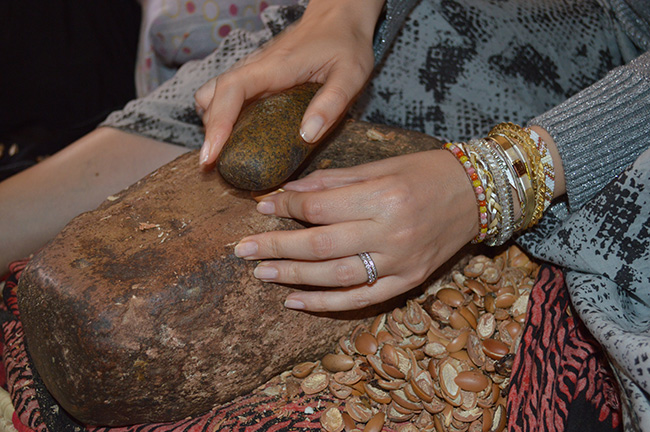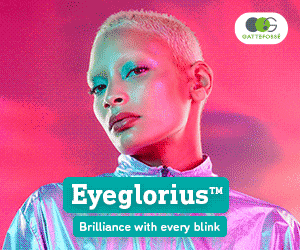Used for centuries by Berber women in medicines and as a staple ingredient in their diet, argan oil has more recently been incorporated into a wide variety of cosmetic applications. Rich in unsaturated and essential fatty acids, argan oil contains in excess of 70 per cent oleic and linoleic acids, making it ideal for use as a skin moisturiser. In addition, with a higher vitamin E than olive oil, it is a beneficial ingredient in nail strengthening solutions, while its nourishing properties play a key role in boosting vitality and bringing a healthy shine in hair products. This ‘liquid gold’ is extracted from the kernels of the argan tree native to North Africa by all female co-operatives, offering social and economic opportunities.
Here, Melissa Naish, Vegetable Oils Manager, Earthoil, takes a closer look at argan oil and focuses on its growth in Morocco. Following a recent trip to the region, she examines how the oil is produced in the country and the benefits ethical sourcing can bring.
Supporting the community
Earthoil works with the only fair trade producer of argan oil in the world and supplies many ethical cosmetic businesses. Situated in a small, rural village outside of Agadir, the co-operative was founded in 2007 and has had a hugely positive impact on its members’ lives since its formation. The idea for the co-operative sprang from female literacy classes in the village run by a lady who has now become president of the co-operative. The women decided to produce the oil as part of a co-operative in order to supplement their family income rather than subsistence production. Due to strict gender roles in the region, where the men have traditionally been the sole breadwinners for the family, of the 200 women that attended the literacy classes, only 22 were involved in the creation of the co-operative. Fortunately, thanks to its success, and the benefits it has brought both to the female members and the village, many of the men have become more accepting of this new role for the women and there are now 68 women working at the co-operative.
The women are free to come to the co-operative as much or as little as they choose, allowing them to work flexibly to earn money around their other responsibilities. On top of what they are paid for the kernels, any profits the co-operative makes is shared out equally between the women members. In addition, the fair-trade premium for the oil goes to the co-operative to spend on making their working conditions more pleasant, for example purchasing air conditioning or facilitating the provision of a nursery to support childcare responsibilities. Yet the members are not only benefitting financially but also through their improved social standing in a male-dominated society. Their healthcare knowledge and overall literacy have improved too, as well as that of their families, demonstrating the positive effects that the co-operative has brought to this village.

The adventure begins
But how is argan oil actually produced? Argan trees are native to the semi-desert Souss valley region of south-western Morocco. The fruit has a thick, bitter peel surrounding a sweet-smelling layer of pulpy pericarp, which encloses the very hard nut containing a small, oil-rich seed. Once collected, the fruit is taken by donkey to be processed. Firstly, all pulp is removed from the fruit to leave the smooth nut; the majority of this process is done by hand. The argan nuts are then cracked open by pounding them between two stones to reveal the soft white kernel inside. These kernels are then cold pressed to release the oil. The temperature must never rise above 40˚C to avoid oxidation and preserve the oil’s properties. Once pressed, the oil is decanted for one to two weeks before being filtered and packed. Usually nothing is wasted; the pulp is used for animal feed and the nut shells are used for fires and heating.
Sustainable production
Thanks to its important cosmetic benefits, huge potential in a number of applications, as well as celebrity endorsements, demand for the oil is booming. Yet due to the restricted geographic locations where it is grown, there is limited supply. The area of land covered by argan trees has shrunk by about half during the last 100 years, as charcoal-making, grazing, and increasingly intensive cultivation has lead to destruction of the forests. In Morocco, argan forests now cover some 8,280 km. and are designated as a UNESCO Biosphere reserve. In addition, 60,000 new trees are planted each year, helping to support conservation in the region.
Earthoil specialises in smallholder producer projects in remote areas across the world. The company is committed to providing organic and ethically-sourced ingredients from 100 per cent traceable sources, which benefit the lives of the people that produce them, as well as consumers.



